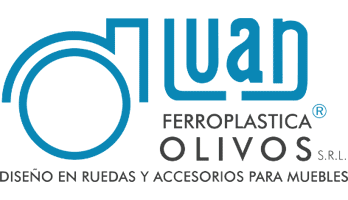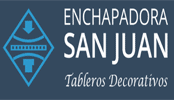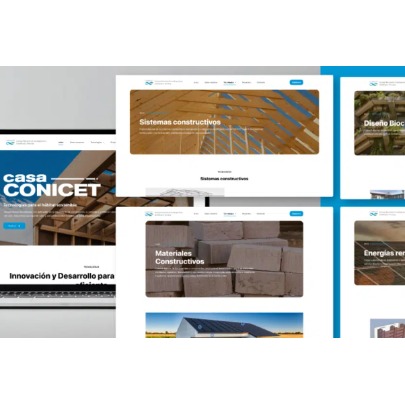
Conicet launches a portal to build houses with less environmental impact
Casa Conicet is the new platform that brings together scientific developments in construction, energy and bioclimatic design, with solutions designed for more sustainable homes throughout the country.
Sustainable construction is no longer a future projection: in Argentina it is beginning to consolidate itself as an urgent need. Along these lines, the National Scientific and Technical Research Council (Conicet) presented Casa Conicet, a digital platform that brings together projects, information on materials and advice to create more efficient and environmentally friendly homes. The casa.conicet.gov.ar portal seeks to bring science closer to the public, private and social sectors, with the aim of offering concrete alternatives to solve housing problems in different contexts of the country. From emergencies to permanent homes, the proposal combines research and technology with a direct impact on everyday life. Sustainable materials and systems One of the most notable sections of the platform is the catalog of construction systems. There are options such as emergency sanitary modules, prefabricated wooden homes or light structural panels. Innovative techniques also appear with lightened soil and designs designed to respond to different local realities. In the area of ??materials, Conicet exhibits developments that are based on recycled and organic inputs. Blocks with reused PET, tiles made with plastic and rubber, or thermo-acoustic insulators with expanded polystyrene are examples of how research can transform waste into low-cost and highly useful products.Renewable energy and bioclimatic designCasa Conicet also offers solutions linked to energy and bioclimatic architecture. Among the available resources there are modular solar equipment, water heaters, air collectors and devices that allow heat to be accumulated without the need for external energy. All were designed considering the specific conditions of each region of the country. The bioclimatic area proposes tools to optimize the use of natural resources. Through simulations, technical advice and project examples, professionals and communities are oriented to achieve buildings with lower energy consumption and greater adaptation to local climates.Applied science in communitiesThe virtual space is not limited to showing products or technical sheets, it also incorporates a section of projects in territory, where specific experiences in communities in different provinces are highlighted.Constructions in local wood, homes with bioclimatic criteria and circular economy proposals They reflect how scientific research becomes tangible solutions. A dynamic tool The platform, open access and with a simple interface, is designed as a resource that is constantly updated. Conicet reported that the portal will continue to incorporate developments and new capabilities, with the aim of becoming a national reference space in sustainable construction. With the support of the Technology Management Directorate and a network of 15 Technological Linkage Offices distributed throughout the country, Casa Conicet is projected as a bridge between scientific research and daily life.
IT MAY INTEREST YOU
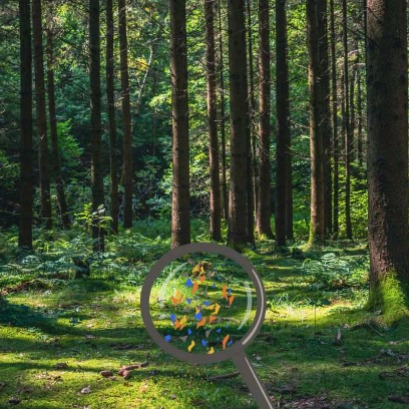 New German study discovers that forests store up to one million microplastics per square meter after decades of plastic rain
New German study discovers that forests store up to one million microplastics per square meter after decades of plastic rain
Researchers at the Technical University of Darmstadt discovered that forest floors contain large amounts of microplastics, which arrive mainly through air.
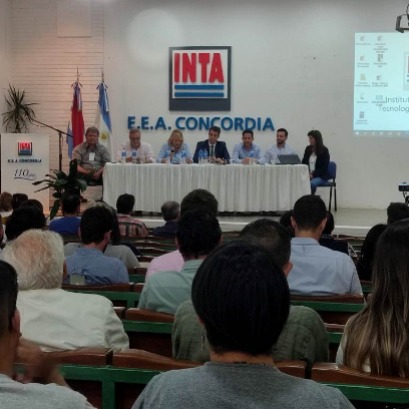 Entre Ríos prepares for the 39th forest days of INTA and Aianer: an annual meeting with experts in Silviculture, Industry and Economics
Entre Ríos prepares for the 39th forest days of INTA and Aianer: an annual meeting with experts in Silviculture, Industry and Economics
The traditional forest days of Entre Ríos, which this year celebrate their 39th edition, will take place on November 7 from 8:00 a.m. to 6:00 p.m. at the INTA Concordia facilities, located in Yuquerí Station and Railroad roads.
 The trees that best cool cities: keys to planting against urban heat
The trees that best cool cities: keys to planting against urban heat
Urban trees are not just an ornament: they are climate infrastructure. Some species cool more than others thanks to their shade and evapotranspiration. Researchers in Valencia identified which ones work best to reduce temperatures in urban environments and how their correct distribution can transform sweltering neighborhoods into liveable places.




